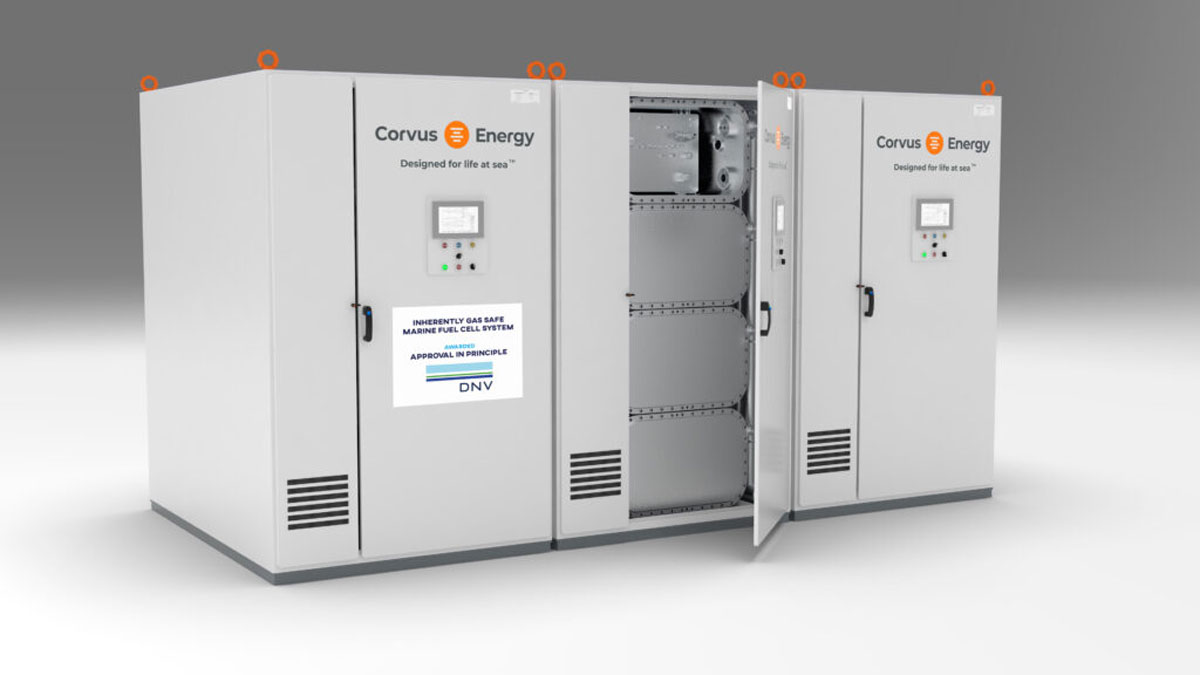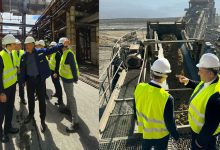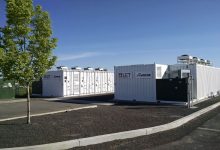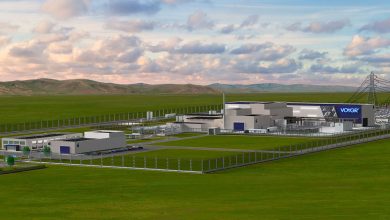DNV Awards AiP for Corvus Energy’s Marine Fuel Cell System
The Corvus Energy Hydrogen Fuel Cell System developed through the H2NOR project has received Approval in Principle (AiP) by DNV for its groundbreaking safety solution enabling simplified placement of the system inside a ship’s hull. This is the first fuel cell system (FCS) designed to be inherently gas safe meaning that the surrounding machinery space will be considered gas safe under all conditions. This design significantly reduces the number of requirements for the safety and ventilation support systems, thereby enabling a more efficient integration onboard the ship.
The main route to powering a clean future
“We’re excited that the inherently gas safe design developed in the project has received approval in principle from DNV, meeting the highest safety standards in the industry,” says Geir Bjørkeli, CEO of Corvus Energy.
“Hydrogen fuel cells in combination with batteries is a clear path towards powering a clean future for shipping. Scalable technology combined with safety and easy integration will help accelerate the transition and make it available to more vessel types”.
Mass-produced fuel cell technology for marine use
The building block of the FCS is a PEM (Proton Exchange Membrane) fuel cell module supplied by the world leading fuel cell manufacturer, Toyota, ensuring top quality, safety, and market availability for the system.
“This project is unique since we’re combining well-known inherently gas safety design principles from LNG ships with fuel cell technology from Toyota,” says Torbjørn Bringedal, CEO at LMG Marin and project partner in H2NOR.
“As ship designers, we are eager to continue our journey providing zero-emission shipping solutions and we consider inherently safe fuel cell products essential in order to obtain compact and cost-efficient hydrogen solutions.”
The Corvus Fuel Cell System can serve as the main power source or as an additional power source to increase fuel flexibility onboard. With water being the only exhaust, the Corvus Fuel Cell will allow a ship to operate in any harbor and protected area today and in the future.
Project partners and scope
The solution is being developed by the H2NOR project, a consortium coordinated by Corvus together with partners Toyota Motor Europe, Equinor, shipowners Norled and Wilhelmsen, ship design company LMG Marin, the NCE Maritime CleanTech cluster and R&D institution the University of South-Eastern Norway (USN). The project will develop and produce modularized and cost-effective PEM fuel cell systems for the international marine market. The project has received EUR 5.9 m in funding from state agency Innovation Norway and The Research Council of Norway, bolstering Corvus’ front-runner position in clean technology.
Commercial delivery in 2024
H2NOR is scheduled to showcase its first marine fuel cell system onboard sailings pilots in 2023, which will take place alongside marine type approval of the product. The product will be commercially available from 2024, resulting in the expansion of the Corvus factories that will manufacture world-leading marine battery and fuel cell systems for all types of commercial marine vessels.







